36 Gutenberg Printing Press Diagram
From Gutenberg To The Global Information Infrastructure ... Printing Press - HISTORY Sep 24, 2021 · In 1452, Gutenberg produced the one book to come out of his shop: a Bible. It's estimated he printed 180 copies of the 1,300-paged Gutenberg Bible , … 3 Design Layouts: Gutenberg Diagram, Z-Pattern, And F Feb 07, 2011 · The Gutenberg diagram divides the layout into 4 quadrants. Benefits of the Printing Press on Education | Bizfluent The printing press' influence on education over the past 500 years has been huge. Before Gutenberg's press, education was one-on-one, teacher to pupil. The information, illustrations and diagrams collected in printed books made it possible for students to learn subjects on their own.
Early printing - gallery of images - Gutenberg's Apprentice Diagram of a modern piece of metal type. A partial reproduction of the font used to print the Gutenberg Bible, which ultimately totalled 292 different forms of alphabetic characters and ligatures. Originally published by Gottfried Zedler, reproduced from Füssel, Gutenberg und seine Wirkung.
Gutenberg printing press diagram
Printing press - Academic Kids The printing press is a mechanical device for printing many copies of a text on rectangular sheets of paper.First invented in China in 1041, the printing press as we know it today was invented in the West by a German goldsmith and eventual printer, Johann Gutenberg in the 1450s. This event has been awarded number 1 of the Top 100 Greatest Events of the Millennium by LIFE Magazine. Gutenberg Printing Press Diagram - schematron.org A modern drawing of the Gutenberg press, with the key parts labeled: screw, platen . This exploded diagram of the Gutenberg printing press gives you a glimpse inside one of the most influential inventions of the past years. A printing press is a device for applying pressure to an inked surface resting upon a print medium thereby transferring. The Jikji, Villard Diagram, and the Gutenberg Revolution ... Figure 5-8 Villard de Honnecourt, Villard Diagram (example), 1220-1240.. Figure 9 George Puerbach, Sphaera of Sacrobosco (Theorice Novae Planetarum), 1230. Stillman Drake Collection. Indeed, the block printing technology of the 1400s gave way to the Gutenberg method of printing which separated typesetting from the printing process, and eventually in Strasbourg during1440 Johannes Gutenberg ...
Gutenberg printing press diagram. Biography of Johannes Gutenberg, German Inventor Johannes Gutenberg (born Johannes Gensfleisch zum Gutenberg; circa 1400—February 3, 1468) was a German blacksmith and inventor who developed the world's first mechanical moveable type printing press. Regarded as a milestone in modern human history, the printing press played a key role in the advancement of the Renaissance, the Protestant ... Constitutional Rights Foundation Printing presses were soon producing great numbers of books translated into Latin from Greek, Hebrew, Arabic, and other classic languages. These books dealt with many subjects such as literature, the law, philosophy, architecture, and geography. By 1500, Renaissance Venice was Europe's printing capital with 150 presses at work. Which statement is the most likely conclusion you can draw ... Which statement is the most likely conclusion you can draw from the cause- and-effect relationship shown in the diagram? Cause Effect Johannes Gutenberg invents the printing press around 1440. Ideas about religion, art, and philosophy spread rapidly throughout medieval Europe. A. The printing press was one of the most important inventions in ... How the Gutenberg Press Revolutionized Printing ... October 7, 2021. Back in the 15th century, the gutenberg press revolutionized the world of print. The printing press enabled mass production of uniform printed products, such as books, newspapers, pamphlets and more. Though this method originated in China, it wasn't until Johannes Gutenberg and his invention of the Gutenberg press came onto ...
Printing Press - HISTORY The printing press is a device that allows for the mass production of uniform printed matter, mainly text in the form of books, pamphlets and newspapers. Created in China, the printing press ... PDF Gutenberg and Korean Movable Type Grades: Author: Topic ... Gutenberg's printing press has been praised as one of the most influential inventions in history, ... complete a Venn diagram comparing the similarities and differences of print production, specifically metal movable type, on Europe and Korea. 4 5. Have students share their answers as a class and fill in their Venn diagram with any Printing Press and Its "Impact" on Literacy | ETEC540 ... Gutenberg combined the technologies of paper, viscous oil-based ink and the wine press to print books thereby allowing for the mass production and distribution of written work. As a result of the printing press, there was no longer the need for the laborious manuscript copying and production of the written word. Printing Press : 18 Steps (with Pictures) - Instructables Printing Press: I took a printmaking class and, after the experience, I just knew that I had to have a printing press of my own. After much research, I decided that a platen press would work for me at home, and I started my shopping. The press I wanted …
The Printing Press | Education World The Printing Press. Subject: Arts and Humanities, Literature, Social Studies. Grade: 3-5. Brief Description. This lesson emphasizes the importance of Johannes Gutenberg's invention of the printing press during the Renaissance. Objectives. Students learn about significant people and their contributions in the field of communication and technology. term:gutenberg = printing press Flashcards and Study Sets ... Learn term:gutenberg = printing press with free interactive flashcards. Choose from 315 different sets of term:gutenberg = printing press flashcards on Quizlet. Printing press - Wikipedia A printing press is a mechanical device for applying pressure to an inked surface resting upon a print medium (such as paper or cloth), thereby transferring the ink. It marked a dramatic improvement on earlier printing methods in which the cloth, paper or other medium was brushed or rubbed repeatedly to achieve the transfer of ink, and accelerated the process. term:(johann)+gutenberg = printing press invention ... Johannes Gutenberg. moveable type. scriptorium. woodblock printing. Invented the printing press. printing method which allowed printing blocks to be removed an…. a room in a monastery housing a workshop for writing or copyin…. a form of printing in which an entire page is carved into a bl…. Johannes Gutenberg.
printing press | Invention, Definition, History, Gutenberg ... The earliest mention of a mechanized printing press in Europe appears in a lawsuit in Strasbourg in 1439; it reveals construction of a press for Johannes Gutenberg and his associates. Gutenberg's press and others of its era in Europe owed much to the medieval paper press, which was in turn modeled after the ancient wine-and-olive press of the Mediterranean area.
Gutenberg Press — International Printing Museum Johannes Gutenberg is known as the "Father of Printing" because he was the first to combine the use of molded movable metal type, a press, and printer's ink. Unfortunately, Gutenberg's actual press, the very first printing press, has been lost to history. We know very little about the specifics of Gutenberg's inventions and even less ...
internet vs. printing press | art85||nicki's blog Johannes Gutenberg's invention of the printing press in 1450 was, without a doubt, a world changing discovery. It changed the lives of people in all nations through an ease in the spread of knowledge. Prior to the printing press, all books were handwritten, taking extreme amounts of time and effort, causing them to be highly expensive and ...
Johannes Gutenberg - Wikipedia Johannes Gensfleisch zur Laden zum Gutenberg (/ ˈ ɡ uː t ən b ɜːr ɡ /; c. 1400 - 3 February 1468) was a German inventor, printer, publisher, and goldsmith who introduced printing to Europe with his mechanical movable-type printing press.His work started the Printing Revolution in Europe and is regarded as a milestone of the second millennium, ushering in the modern period of human ...
See inside the Gutenberg printing press - How It Works The man credited with the invention of the printing press is inventor Johannes Gutenberg, who lived and invented the press in Mainz, Germany. Here, around the year 1440 - an exact date is not known - Gutenberg designed a device based on screw presses that, when partnered with inked movable type heads, allowed paper to be quickly and ...
Johann Gutenberg and Invention of the Printing Press Johann Gutenberg is commonly credited as the inventor of the printing press and the father of the modern printed book. This led to a revolution in the spread of information that opened up the world to the quick and efficient dissemination of knowledge and ideas. Gutenberg's cultural status as the forebear of modern book production led Time ...
Johannes Gutenberg and the Printing Press | Education World Introduce Johannes Gutenberg, and tell students that they will each create a time line about the life of Johannes Gutenberg and about how his invention, the printing press, influenced the development of newspapers. The following are good Web sites: Johannes Gutenberg Media History Timeline: Johannes Gutenberg Johannes Gutenberg and the Printing ...
PPT - Gutenberg Printing Press PowerPoint presentation ... 3 Peripherals With The Capability Of Digital Printing - Since Gutenberg developed the first printing press in 1400s, the printing world has changed a lot and has created a new and exciting area of printing in the form of digital printing technology. Digital printing is a process of printing digital-based images onto a variety of media, such as paper, card, and textile, using digital files.
The Information Age and the Printing Press: Looking ... The printing press spread quickly (for its time) from Gutenberg's first press in Mainz in 1450 throughout Europe by 1500. In that time, as many book copies were printed as had been produced in the previous millennium by scribes. [12]
Johannes Gutenberg | Printing Press, Inventions, Facts ... Johannes Gutenberg, German craftsman and inventor who originated a method of printing from movable type. Elements of his invention included a durable type-metal alloy, an oil-based ink that adhered well to metal type and transferred well to vellum or paper, and a press for applying even pressure to printing surfaces.
Renaissance | World History Quiz - Quizizz Which of these would complete the diagram? answer choices . the Book of Common Prayer. the Italian university system. the Gutenberg printing press. the Petrarchan style sonnet. Tags: Question 9 . SURVEY . 30 seconds . Q. Which of these changes occurred during the Renaissance? answer choices
The Jikji, Villard Diagram, and the Gutenberg Revolution ... Figure 5-8 Villard de Honnecourt, Villard Diagram (example), 1220-1240.. Figure 9 George Puerbach, Sphaera of Sacrobosco (Theorice Novae Planetarum), 1230. Stillman Drake Collection. Indeed, the block printing technology of the 1400s gave way to the Gutenberg method of printing which separated typesetting from the printing process, and eventually in Strasbourg during1440 Johannes Gutenberg ...
Gutenberg Printing Press Diagram - schematron.org A modern drawing of the Gutenberg press, with the key parts labeled: screw, platen . This exploded diagram of the Gutenberg printing press gives you a glimpse inside one of the most influential inventions of the past years. A printing press is a device for applying pressure to an inked surface resting upon a print medium thereby transferring.
Printing press - Academic Kids The printing press is a mechanical device for printing many copies of a text on rectangular sheets of paper.First invented in China in 1041, the printing press as we know it today was invented in the West by a German goldsmith and eventual printer, Johann Gutenberg in the 1450s. This event has been awarded number 1 of the Top 100 Greatest Events of the Millennium by LIFE Magazine.

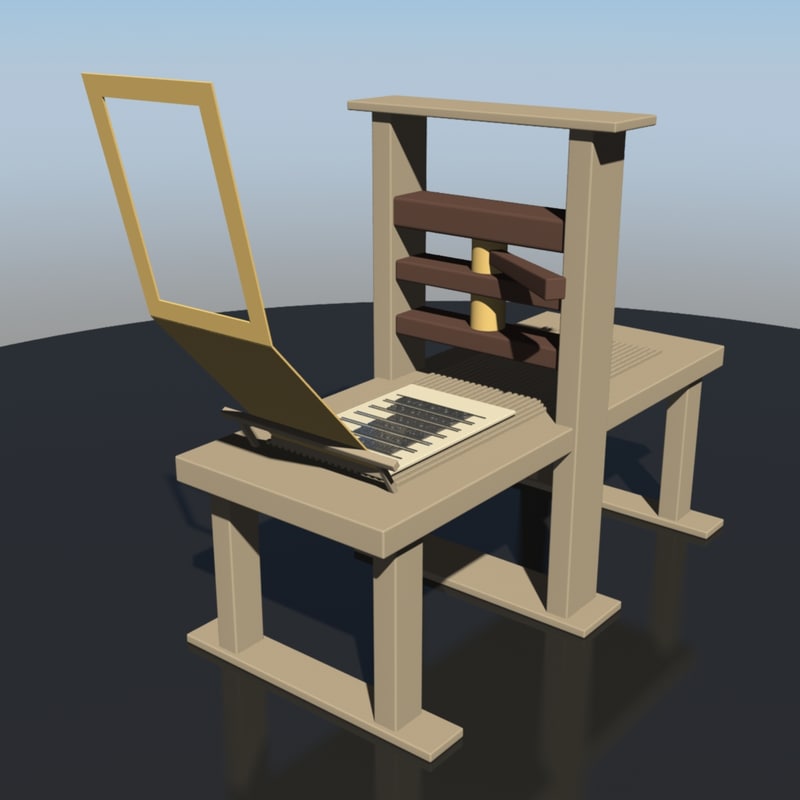
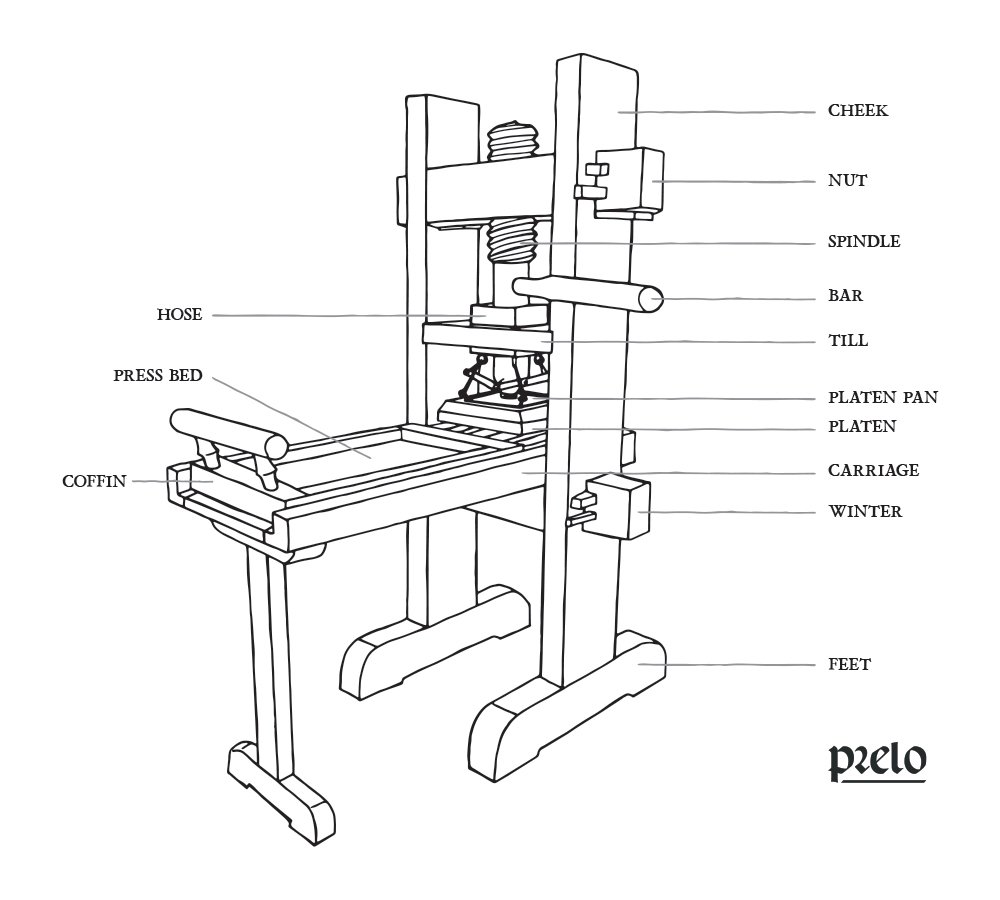



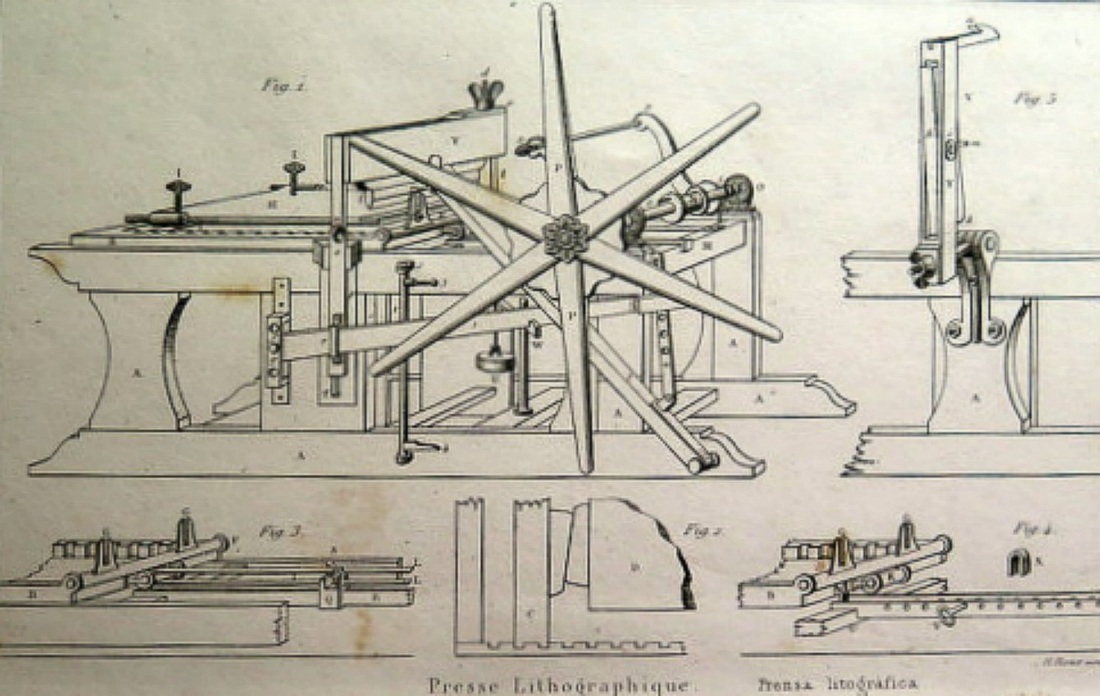



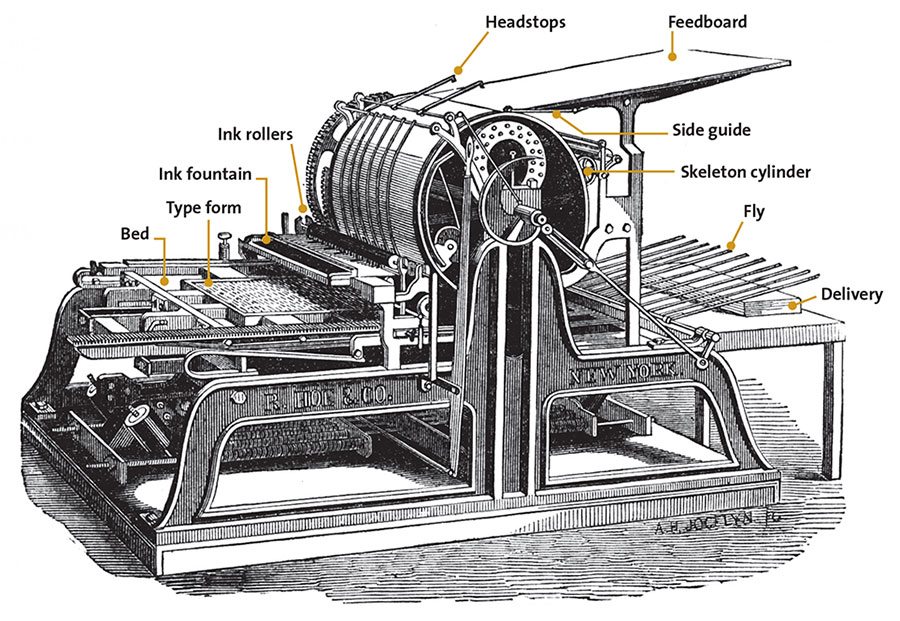





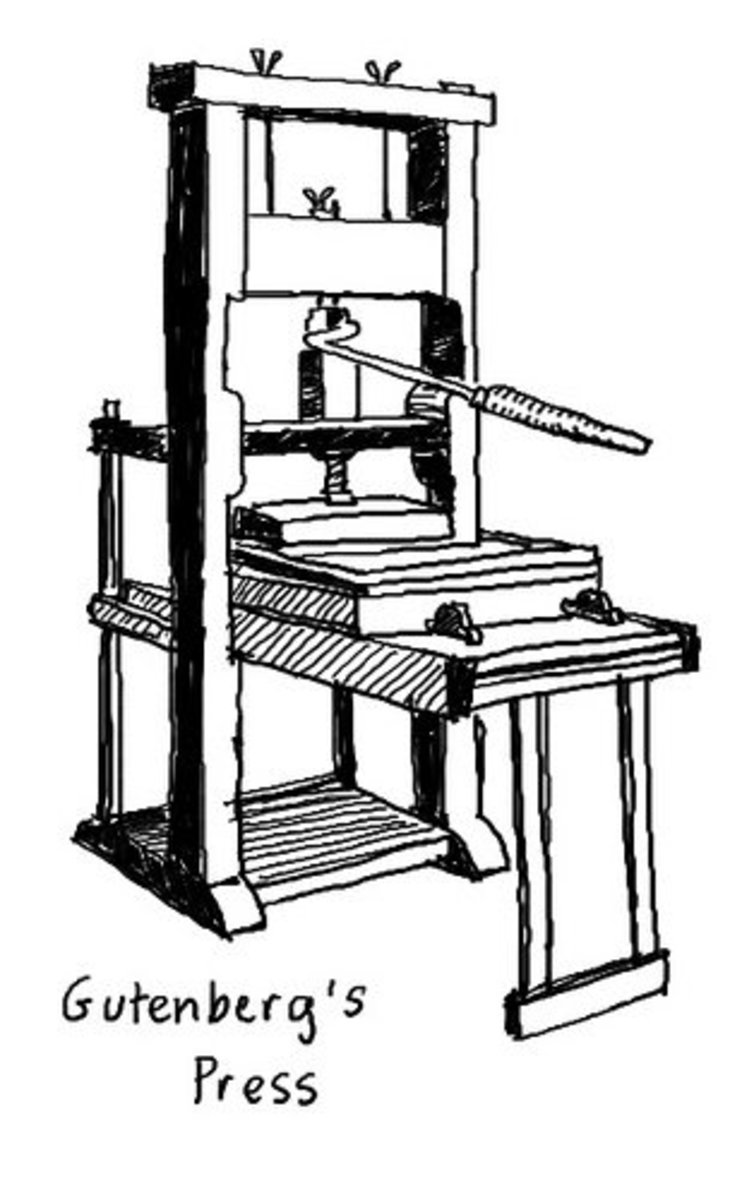


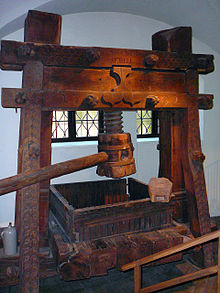
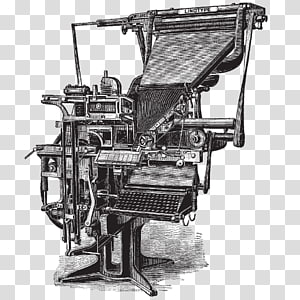


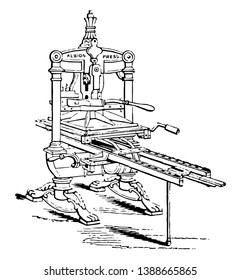

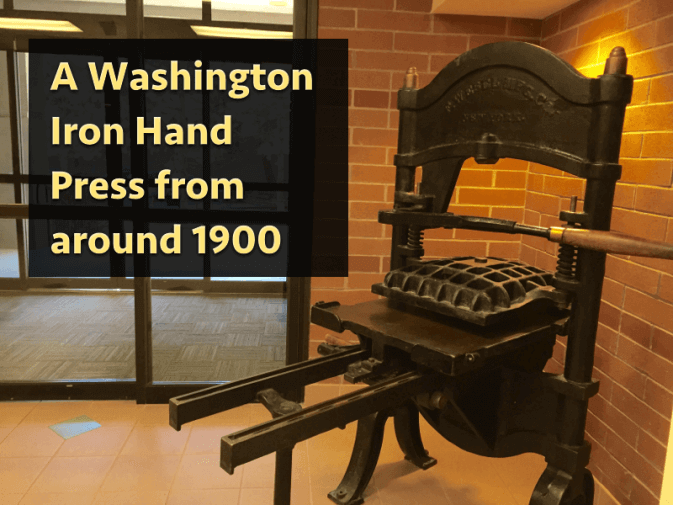

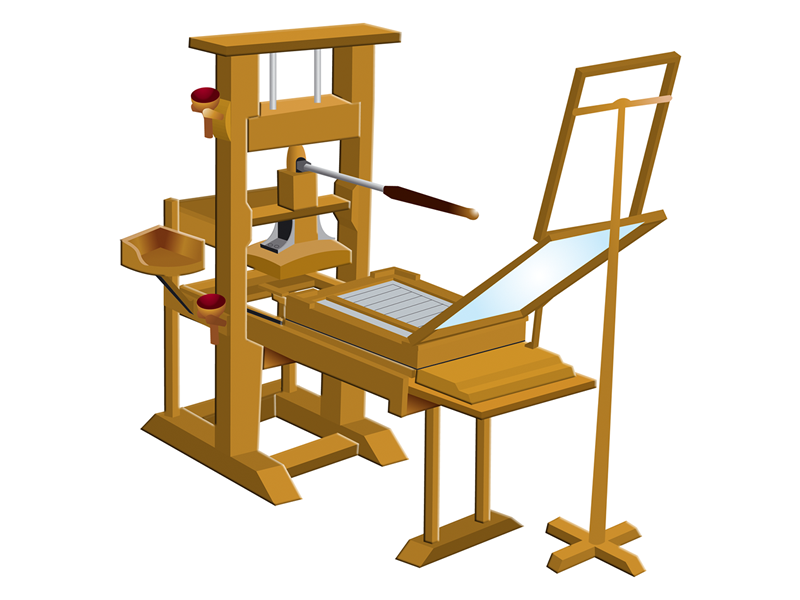


0 Response to "36 Gutenberg Printing Press Diagram"
Post a Comment